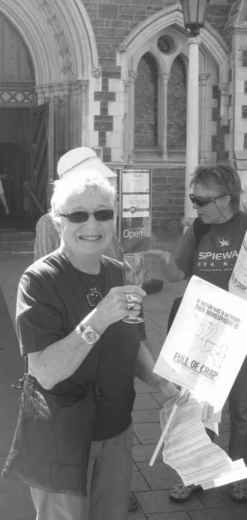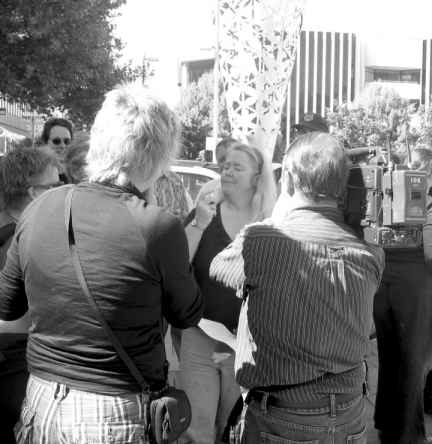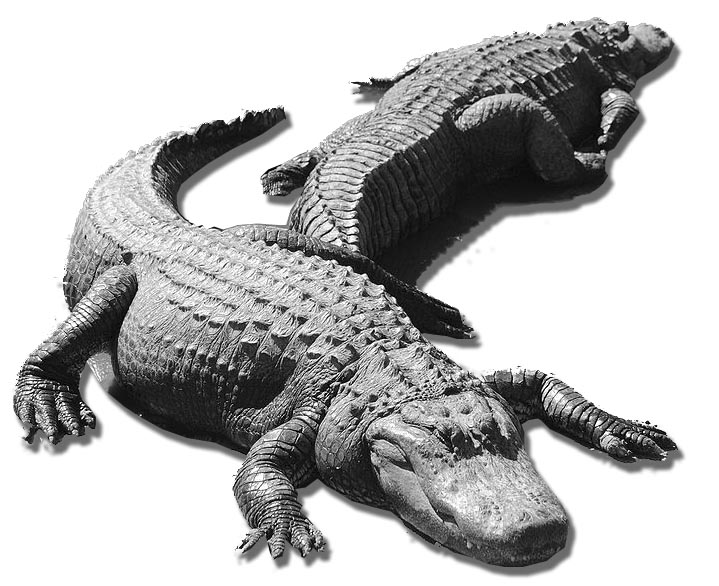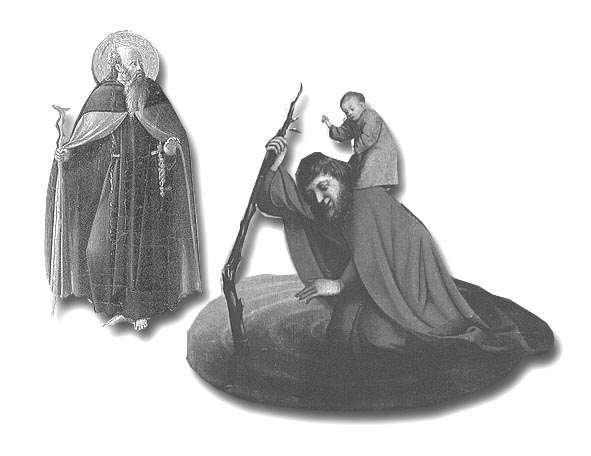The paranormal field contains both con artists and the well-intentioned. It’s often impossible to tell one from the other, but in the end it makes little difference. This article is based on a presentation to the University of the Third Age.
People want reassurance about the future. We seek some kind of certainty, whether in the form of three-year political plans, saving for retirement, or looking for comfort in the various forms of crystal ball that try to make guesswork and psychological manipulation look like the truth.
We try to maintain a balance between wide-eyed credulity and close-minded cynicism as we´re bombarded with claim and counter-claim, miracles, astounding revelations, scientific discoveries, technological advancement, belief, faith and fact. We look for explanations.
One of the things that makes us vulnerable to con artists and well-intentioned loonies alike is our tendency to want to believe that someone is being straight with us. If they say they can predict earthquakes, then that’s what they are doing; if they say they can talk to the dead, then they really must be able to talk to the dead.
It’s not considered polite to express any form of scepticism or disbelief. And even those whose job is to do so, such as the members of the Fourth Estate, are often caught out by this. Something has to be really kooky sounding for our warning bells to go off, and there are people more than willing to dress up their favourite scam with all the trimmings of sophistry and science to get us to put hand to wallet, or simply just to believe in them and what they are telling us.
That said, it’s my belief that the vast majority of people in the very dodgy paranormal and pseudoscience businesses are not being deliberately fraudulent. Wilfully ignorant perhaps: unquestioning believers in their own egos and super-powers certainly.
I don’t know if forecaster Ken Ring is a fraud or really believes that he can predict the weather and earthquakes; whether he’s motivated by a desire to sell as many books as possible or simply wants to help the public. I can say the same about Paddy Freaney who said he saw a moa up in the Craigieburn �mdash; it may have been a genuine sighting, or a mistake, or simply a clever marketing ploy to get more business for his nearby Bealey Hotel. And Deb Webber of Sensing Murder fame �mdash; was it a desire to help desperate parents that saw her claim to psychically connect with missing Auckland toddler Aisling Symes or was it part of her pre-scheduled television appearance to hawk discounted entry tickets to her New Zealand tour?
You be the judge. But if it looks like a duck, swims like a duck, quacks like a duck… there may be something fowl there.
Sometimes the signs are just too too obvious. And it really helps to be aware of them. Think of a little applied scepticism as consumer protection for the mind.
How good is the information being provided? If the photos are blurry, reserve judgement as to whether you are seeing Bigfoot or a man in a gorilla suit. If the clinical trial has a sample size of 12, all carefully selected by the man looking to connect autism and vaccinations to sue Big Pharma, then it’s not Big Pharma you should be wary of. If the medium claims to be speaking to or about your dearly departed, listen closely to really see if they are telling you anything beyond the obvious.
On Sensing Murder Kelvin Cruickshank once pronounced this as an amazing revelation regarding the funeral of six-year-old murder victim Alicia O’Reilly:
“It sounds a little weird, but she must have been buried in a white coffin.”
But there’s nothing weird about a little girl being buried in a white coffin �mdash; it’s a fairly common practice for children’s funerals. Not to mention the fact that the coffin was clearly seen in the widespread television coverage of the funeral. I think he phrased it that way to make it sound more amazing, as if he really was getting knowledge from the beyond, and few of us would stop and say “hang on a minute…”
We all have a lot in common, and the psychic industry exploits that to make the banal sound amazing. There’s a reason why mediums come up with the same names over and over again.
Mediums never come up with names like Piripi Te Aorangi or Sione, but concentrate on relatively common men’s names. A widow-heavy clientele makes that a necessary line but, more subtly, men often have traditional family names. So, instead of names like Dwayne or Dylan, mediums will ask about John or Michael, Charles or Richard, William or David.
It would be surprising if you couldn’t think of someone with the name John in your extended family. Mediums boost the odds by accepting middle names, nicknames, friends and colleagues, and they don’t even have to be dead to count as a hit. That can be explained away by saying the spirit world is watching over the living person. Mediums will commonly fire out a dozen names per reading, so it would be very surprising if they missed getting at least one apparent hit.
Some psychics hedge their bets even further by simply providing an initial. Few get quite as ludicrous as one desperate medium who, on not being able to get his subject to recall any special name beginning with “M”, finally blurted out, “Ah, it&39;s M for Mother&33;”
And we actually help them, with our willingness to suspend disbelief and to provide information, often without realising it. Cunning mediums, particularly those on the professional circuit, know how to exploit this fact, weaving our words into their patter and feeding it back to us as if it was something they knew all along.
TV3 flew me up to a book launch for medium Jeanette Wilson&59; the reporter was very excited that this woman was the real deal because she could provide actual names. We went to the launch and later this investigative journalist gushed about how Wilson had told one audience member that his father was called Frank. Fortunately, we&39;d caught that exchange on tape, so I got her to play it back. It went like this:
JW: Does the name Frank have any meaning for you?
Subject: My father was Frank.
JW: Yes, that&39;s right. I understand.
You don&39;t have to be foolish to be fooled. Those going to psychics or mediums are often desperate to believe, which makes them easy to exploit, but even those whose job depends on careful listening and recall can be easily misdirected.
I&39;ve done this sort of thing myself, when asked to impersonate a psychic and demonstrate the tricks and techniques used by the trade.
So you should listen for obvious cueing and changes of tack, or those spurious affirmations when an error is noted which flips it around to sound as if they knew all along.
Another example from Kelvin Cruickshank, this time looking at Alicia&39;s drawings. He spotted a depiction of her pet, something black and four-legged – her dog, he announced. Off-camera someone said “a cat”. The film crew knew there was a cat in the O’Reilly household, as it had been part of the mother’s story. “Oh cat is it?” said Cruickshank. “Oh it is too.”
What is psychic about that?
It can be really handy if you can identify a clear factual statement that can be checked out. This is harder than it sounds, as unequivocal statements are not part of the psychic stock in trade. It can also be difficult to check facts without having personal contacts or knowledge to draw upon. That said, there was something in the Sensing Murder programme about Alicia O&39;Reilly that could be checked.
Cruickshank made much of Alicia talking about children&39;s television show What Now?, and how that must have been a Saturday morning treat for her, adding that this clearly indicated her murder took place in the 1980s. This was made more dramatic by a voiceover noting that Alicia had been murdered in 1980. However, according to TVNZ, What Now? didn´t go on air until nine months after Alicia’s murder…
Con artists and True Believers alike will provide some kind of ad hoc explanation to either deny or explain away such errors. I often ask people, “how many times would it take for you to get things wrong before you would consider that maybe you aren&39;t doing what you think you are?” People with a vested interest in their own powers will very, very rarely face up to that.
Best yet, look for solid predictions, record them before the event and see how they stack up afterwards.
The most entertaining and regular examples of these are the tabloid predictions made at the beginning of every year. There are two things these regular features have in common:
1. a large proportion of predictions are wrong, even when plausible instead of downright silly;
2. they consistently miss the truly surprising, truly huge news events of the year.
Skeptics around the world track these and see how the “psychics to the stars” do, people who are touted as the best in the business. Back in 2004 the more plausible predictions involved the deaths of Osama bin Laden, Saddam Hussein and Fidel Castro. All wrong. As were the really off-the-wall predictions of the discovery of live dinosaurs, and US General Colin Powell switching political parties to trounce George Bush and become a Democrat president.
What did the psychics miss that year? Just the massive Boxing Day tsunami that saw 214,000 people die across 11 countries. Surely it shouldn´t have been too difficult for just one of them to feel that sort of death and destruction reverberate through the cosmic ether?
However, of greater concern are those predictions which have a real personal impact on us and affect our behaviour and the behaviour of those around us.
Every year we get the prediction of San Francisco falling into the sea. It&39;s not there yet. But every year it comes back, along with other end-of-the-world scenarios, cometary impacts, giant bat attacks, the rising of Atlantis. They are invariably wrong.
I&39;ve lived through too many end-of-the-world predictions from Y2K to the Rapture to worry too much about them any more. What I do worry about is the very real psychological harm that inevitably accompanies such predictions, particularly when they are reported by an uncritical, uninformed media. Facts may whisper, but fear screams.
I worry about groups like the ominously named Ukrainian White Brotherhood who caused riots and bloodshed in their shaky nation in preparation for their earthquake apocalypse predicted in 2001.
I was worried about having a Minister of Civil Defence who believed that the end times were coming so there was no point preparing for natural disasters and emergencies when God had ordained it and the Bible had confirmed it. Yes, that was a New Zealand Cabinet Minister.
I felt sorry for the believers who sold their businesses and their homes in New Zealand and abroad, to meet the end of the world predicted by a Korean fraudster. I guess one thing to be said for him, at least he didn&39;t tell his followers to bring their world to a real end by mass suicide. It&39;s been known to happen.
I worry about the Cantabrians who ended up with unnecessary psychological stress heaped on an already deservedly anxious frame of mind because they believed in Ken Ring&39;s pronouncements regarding a massive earthquake happening on March 20 roundabout lunchtime. Some 50,000 people believed enough to flee the city that weekend and, despite the huge aftershock&39;s non-arrival, many still choose to believe in a former maths teacher-cum-magician than in real geologists.
Of course, it can be hard to be a judge when you are liable to only get part of the story. Particularly if the person at the centre of it controls the information.
Psychics will often talk about assisting police with missing persons&39; cases. What they don&39;t tell you is that there has been not one substantive case where psychically derived information has been of any significant use. That their &39;assistance&39; often comes down to making a phone call, or that they talked to a search and rescue person about their dream.
Deb Webber claimed to have seen Aisling Symes in a ditch. As one policeman put it, ” If she&39;s said there&39;s a body in a ditch in West Auckland, there are plenty of ditches and we can&39;t do much with that information.” And if police had actually limited their search only to ditches, as defined by almost every normal person and dictionary, then Aisling&39;s body would never have been found. That&39;s how truly useless her comment was. Yet there are people prepared to go on her three-year waiting list to pay her $250 for a half-hour reading. And who are willing to ignore the loud quacking that resulted when she was shown on camera talking to three non-existent dead people when an Australian television crew put her to the test.
People in this industry often claim to be doing it to give families closure, that they are just trying to help. They ignore or dismiss the harm and pain that they often cause. whatstheharm. net lists hundreds and hundreds of cases where families, parents, spouses, friends have all suffered unnecessarily through psychics and mediums exploiting their awful situations for money, marketing exposure and outright ego-boosting.
It&39;s rare for such families to speak out against this. Sometimes they have family members who want to believe. Sometimes they are desperate for any kind of help or assistance. Sometimes they think the extra publicity might turn up real information. Sometimes they have paid over so much money they don&39;t dare believe that it might all be for naught. Sometimes they are just too polite to call a duck a duck.
Here&39;s a heartfelt comment from one chap who had worked knowingly fraudulently as a fake medium, and who came to realise the damage that he had been doing:
“While aware of the fact that I was deceiving [my clients] I did not see or understand the seriousness of trifling with such sacred sentimentality and the baneful result which inevitably followed. To me it was a lark. I was a mystifier and as such my ambition was being gratified and my love for a mild sensation satisfied. After delving deep I realized the seriousness of it all… [W]hen I personally became afflicted with similar grief I was chagrined that I should ever have been guilty of such frivolity and for the first time realized that it bordered on crime.[
That was a very chastened and very honest Harry Houdini.
And, sadly, our ill-trained, inexperienced and under-resourced news media often doesn&39;t help us to assess the claims that are out there. Ken Ring was described in a number of publications as a lunar scientist, which sounds reasonably scientificky and gave him a spurious credibility. What you weren&39;t told was that he believes dolphins are beaming sonar signals to the Moon, and supports the idea that Indo/Egypto/European cultures were present in New Zealand thousands of years ago. Surely that says something about his credibility…
We get psychics who confidently state that missing people will be found near trees or water. Frankly it would be difficult to get away from one or the other in New Zealand. So that&39;s not much help either. And for all those pseudo-documentaries masquerading as reality TV, there have been no cases solved by mediums or their psychic brethren except in their own publicity material.
I have often been asked why the New Zealand Skeptics gives such people the oxygen of publicity. Why do we try to take a public stand against both the well-meaning if misguided individual and the charlatans and fraudsters alike? Why do we bother to point out when claimed scientific evidence is not actually scientific; why do we go behind the scenes to reveal the dodgy dealings of the professional medium; why do we try to make people aware of their own fallibility and vulnerabilities?
To paraphrase a famous quote that we all should bear in mind: For a dangerous idiocy to succeed requires only that good people say nothing.






